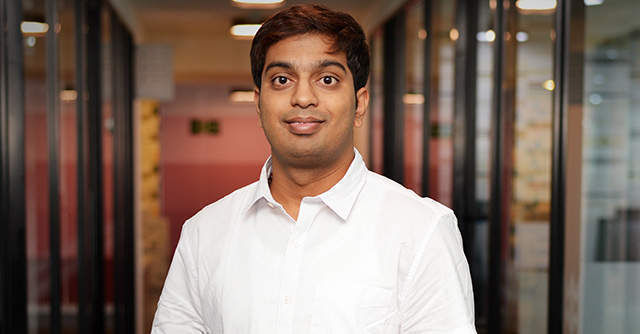
How Bobble AI has expanded its portfolio from making chat stickers to selling to BFSI


WhatsApp has replaced SMS, TrueCaller replaced phonebooks, and Snapchat and Instagram filters have replaced normal camera applications. While everyday phone applications have been monetized by technology companies, Gurugram based startup Bobble AI’s founder Ankit Prasad believes there is another space that is yet to be monetized -- the smartphone keyboard.
“On an average, a user spends 30 minutes a day on the keyboard, while they operate it at least 120 times a day,” Prasad told TechCircle.
Prasad started building custom stickers for Android and iOS keyboards in 2015 through a custom widget. Through the course of many strategy changes, the company now looks to target the big fish in the technology adoption environment -- the banking, financial services and insurance or the BFSI sector.

Bobble AI works by providing an SDK toolkit for its clients, through which they can embed APIs (application programming interface) into keyboards for specific functionalities. In simpler terms, the startup allows banks and other companies to provide their services directly on the keyboard of the smartphone, without having to switch between multiple applications or browsers.
But how exactly does the application work?
Let’s say that on a WhatsApp chat a friend requests to be paid a certain amount. The usual process would include closing WhatsApp, choosing between multiple payment applications such as the phone banking app, GPay, PhonePe, accessing the application and going back to the WhatsApp chat to let the friend know the amount has been paid.

Many payment services do not allow for screenshots for security concerns, which adds to the complexity.
“I am forced to go out of my flow of conversation in order to execute a small payment task. Payment should be seamless. While I'm talking to you I should be quickly able to transfer money to you or receive money from you,” argues Prasad.
With the Bobble AI keyboard, the user would be able to pay without having to leave the WhatsApp chat and without having to open another application.

Another use case is how it could help a user trying to source raw material through IndiaMART or Alibaba. “By understanding that Alibaba is in the foreground the keyboard can position a feature of short-term loan or overdraft so that the business person can get a loan at the right time when they need it the most,” explains Prasad.
The keyboard revolution began in 2016 when most keyboard APIs were thrown open for third-party-developers in Android 6.0 and iOS 8.0.
“We were among the first to use these APIs to create a custom keyboard,” says Ankit. Around the same time was when Google launched its own keyboard called the Gboard, while Microsoft jumped into the game by acquiring SwiftKey for $250 million. Chinese multinational Baidu launched its own voice enabled keyboard backed by AI (artificial intelligence) called Facemoji Keyboard.

Watch: Freecharge CEO Siddharth Mehta on neo-banking and new growth frontiers
The timing for Bobble AI couldn’t be more right, given the penetration of smartphones in the Indian market coupled with the demand for digital payments.
Over the past year, there has been a significant rise in the time spent by the average user on social media applications. According to research from market-data platform App Annie, the average Indian mobile user spends close to 4.6 hours on their mobile phone, up from 3.3 hours in 2019. Fact website statistia.com showed that the insurance penetration was around 3.7% in 2018, while only 3 in every 100 Indians owned a credit card.

Prasad believes the keyboard for the BFSI area holds potential. Israeli firm PayKey, for example, has tasted success in the domain and has garnered clients from across the globe. The company has also managed to rope in Mastercard as one of its partners.
The journey
The move from a B2C (business to consumer) keyboard animation provider to a B2B (business to business) company was formulated in 2018 when the company decided to enter into partnerships with various handset manufacturers in order to scale up faster. This was when the founders realised that the company could provide more than a revenue sharing model for its partners.

“We were able to distribute their services more efficiently, help them have a better understanding of their consumer base, and were already putting in efforts in customizing the solution as the needs of the customer,” Prasad said. This was when the company got in touch with players in the banking sector to make their offerings to clients more accessible.
Bobble AI has also partnered with global technology company Affle, which has acquired an 8% stake in the company in August 2020. In June 2019, the company raised a Series B funding round from mobile giant Xiaomi for $3 million.
Moving forward, Bobble AI looks to enter into a new line of business known as programmatic advertising, which refers to the automated buying and selling of online advertising. “Using the data intelligence from our various products, we are helping advertisers and brands to reach the right customer through our programmatic advertising,” says Prasad.
Other lines of growth include conversation media marketing, along with technology licensing through a recent partnership with IT firm HCL. Prasad also told TechCircle that the company is in advanced stages of conversation with other system integrators who have a global footprint, and also looks to raise funds and grow at a faster scale in the coming months.
